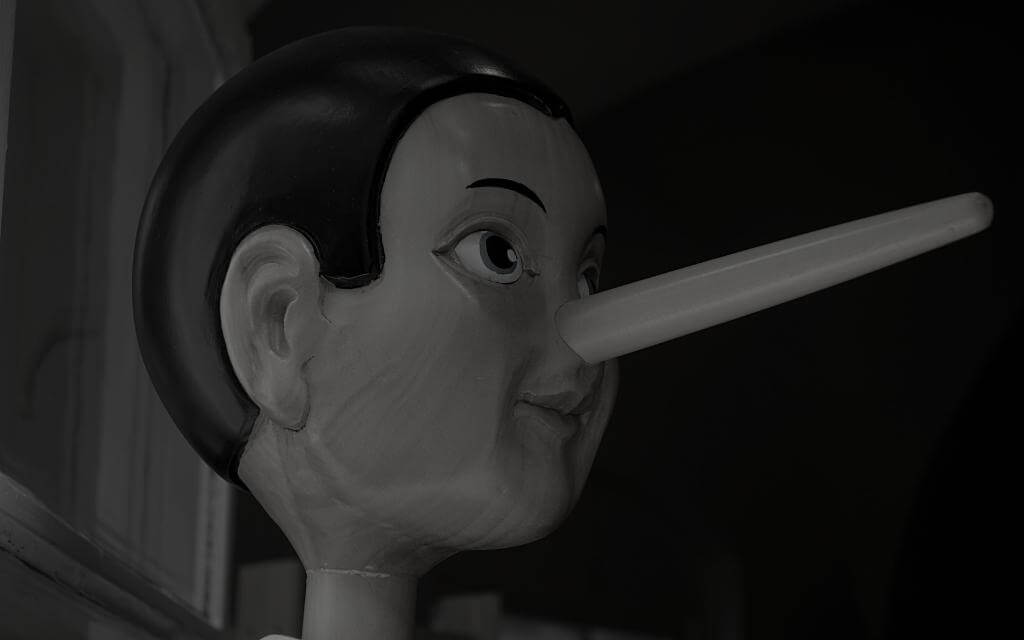Much of what we are taught to believe is influenced by societal conditioning. This can become our downfall when we don’t question our beliefs surrounding what we’ve been told. If you are still a believer of any of these 8 lies, my goal is to influence you enough to at least question their existence.
1. Time is Money
Although time may be required to create money for ourselves, time is not directly proportional to the amount of money we can create. This is a lie we have been led to believe by much of society.
The amount of money we make is directly proportional to something though…perceived value. The source of our income (employer if you work for someone or clients if you own your own business) has made a perceived assessment of our value and pays us accordingly.
Once the value is perceived, a financial number that seems to match that value will be created. People pay for the value we offer, not our time. If time was directly proportional to how much money we make then we would all make the same amount of money, given that we worked for the same amount of hours.
If we want to make more money, we must create more value in the world.
2. Other People Make Us Feel The Way We Do
Most people live by this. Once the truth of what really makes us feel the way we do is explored, many of us still have a hard time understanding how this is not possible.
If someone says something, we then we feel a certain emotion towards what they said and associate their words with our emotions. This is so far from the truth.
The only way we can ever feel an emotion is to have a thought precede that emotion. Without that thought, we feel nothing towards what was said.
We make ourselves feel the way we do via our thoughts. Once we take our thoughts as reality, we take our thoughts personally. We then to proceed to take what the other person says personally.
The truth is, it is our thoughts about they say that we take personally, not them. It always starts with us…always.
3. No Pain, No Gain
Having worked in the health and fitness industry for years, this is probably the most common saying I hear. It doesn’t just apply to the fitness industry though.
I have heard it used in reference to the sacrifice of long work hours, the grind of working one’s way up the executive ladder, the emotional distress of a ridiculous school curriculum, paying our dues, etc..
Pain is absolutely not necessary to achieve any goal, pain is optional, and so is suffering.
4. Certain Emotions Are Bad
This is a topic I talk about a lot because I see so much suffering coming from self-judgment. By self-judgment, I mean telling ourselves that we shouldn’t feel a certain way because we don’t want to feel that way, or we were taught that it’s not right to feel that way.
Most of us have been conditioned from a young age that when someone we love passes, we should feel sad and we shouldn’t feel happy. We internalize that as it’s good to feel sad and bad to feel happy. The judging begins.
This conditions us to believe that during an event that we’ve judged as sad, it’s not good to feel happy. And when life is judged as being good, it’s bad to feel sad, that we should always think positive!
I see this often with guilt, people will do next to anything to avoid feeling guilty, they will sell their souls before feeling guilty by conscious choice. For example, a diabetic man takes his perfectly healthy wife out to dinner, he decides to take her to her favourite local restaurant, which happens to be Chinese food. He then proceeds to join her in indulging on her favourite dish with her, which happens to be pasta based (terrible for diabetics).
He opts to join her in the indulgence of food that doesn’t serve his health because he thinks he will feel guilty if he doesn’t (even though she may be OK with it). He fears feeling guilty more than deteriorating his own health.
This is an example of just one of many occasions where he puts his avoidance of guilt before his own health. His health progressively gets worse.
If he were to not judge guilt as a bad emotion, but instead use the feeling of guilt as an indicator that tells him his thinking is off, he could start seeing his emotions as a signal to check in on his thinking instead of judging a perfectly normal, innate human emotion.
At the end of the day, all of our feelings are innate, and neither good nor bad until we judge them as such.
And who are we to judge anyway?
5. Follow The Money
Happiness cannot be bought.
We can create money from your passion but we can’t create passion from our money.
Would you rather…
Make 100k/yr but dread waking up each day knowing you’re about to go do something that brings little to no joy or meaning to your life.
or
Make 50k/yr but wake up each day with an eagerness to start your day because you can’t wait to start doing what you love to do, as it adds joy and meaning to your life.
I completely understand that a handful of people will opt for the 100k/yr job, but most will opt for joy over money. Can we have both? Most definitely! Go for it!
Do what you love, money can be created, love is innate.
6. Studies Say It’s True So It Must Be True
I’m not going to talk about the amount of corruption that I believe exists within governments and leading authorities. That’s a can of worms I don’t feel like opening right now.
Instead, I will cite a leading example of a dietary study that was once projected to be true and has never since proven to be true.
The 7 Countries Study (saturated fat and cholesterol are NOT bad for us)
This is the study that initiated a still hotly debated topic regarding saturated fat and cholesterol causing heart disease. Note, to this day, there is not a single study that proves this.
This epidemiological study began in 1958 by an American scientist named Ancel Keys. The purpose of the study was to investigate the relationship between dietary intake within different countries and heart disease.
The study began with 22 countries but finished with 7. Why? Because 15 of the countries didn’t fit Keys’ hypothesis regarding dietary fat and cholesterol causing heart disease.
To this day, this is the same study that is used to inflict fear upon the public regarding fat being bad for us. Too bad this is built upon a lie.
Extra Reading:
A massive review article published in 2010 looked at 21 prospective epidemiological studies with a total of 347,747 subjects. Their results: absolutely no association between saturated fat and heart disease.
Another good read: The idea that saturated fat raised the risk of heart disease was an unproven theory that somehow became conventional wisdom.
The message here is that while a study may ring true at the moment, this doesn’t mean it’s a universal truth. There’s a very good chance it’s just a temporary personal truth.
An additional note, many dietary studies are funded by sources that have a vested interest in the outcome of the study going their way. Money talks.
Don’t believe everything you read, watch, or hear. Develop your own truths, and if it doesn’t feel right, it probably isn’t.
7. Retirement
We wouldn’t feel the need to retire if we love how we are spending our time.
I’m only 32 years old and I absolutely love what I do as a coach and writer/blogger. I cannot picture myself doing anything else at the moment. If I were approaching my retirement years, I wouldn’t even consider retirement, that option wouldn’t even be on the table. Why? I love how I’m spending my time. I wouldn’t want to spend it any other way.
The moment I no longer love how I’m spending my time, I’ll move on to my next love, whatever that may be.
If we feel the need to retire (aka quit) something, we can bet that our heart is no longer in it. If we work our entire lives just to retire what does that say about where our heart is? Not in it.
Do we fall head over heels for someone and then look forward to retiring the relationship?
Do we fall head over heels for our favourite athlete and then look forward to them retiring?
Would we fall head over heels with our career and then look forward to ourselves retiring? I think not.
We only look forward to retiring because we aren’t head over heels in love with what we do.
Retirement is societal conditioning functioning at its’ best. A belief that has been ingrained into most of our heads…” pay your dues for 40 years and then begin to live your life for whatever remaining years you have left.”
To me, this is not the best advice to live a joyous and fulfilling life from start to finish.
8. We Need Money To Make Money
If you’re an investor, sure this is an accurate statement. However, investing is just one avenue to make money for ourselves.
If we refer back to the whole “Time is Money” belief, the same appeal applies here.
You don’t need money to make money, having value to offer also makes money.
To emphasize this statement…
Here are a few people who came from nothing to become billionaires:
It’s hard to argue the perceived value that they brought to their respective markets. When you’re a fan or not, you have to hand it to them.
Learn from all of your experiences, opportunities are everywhere.
Take care,






























